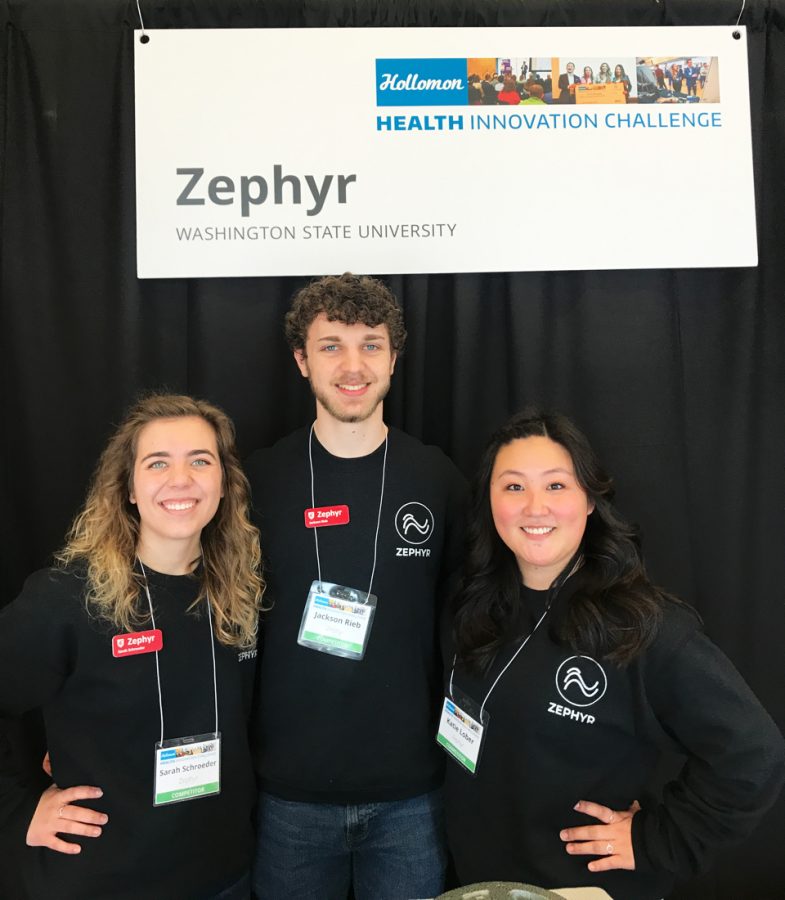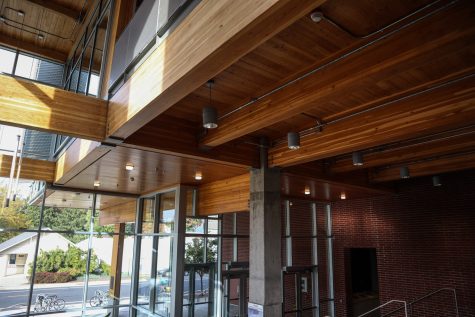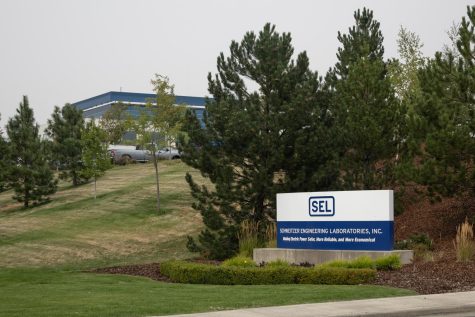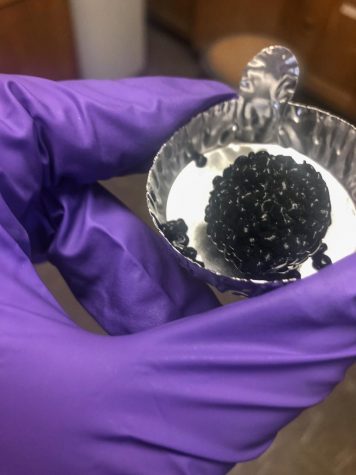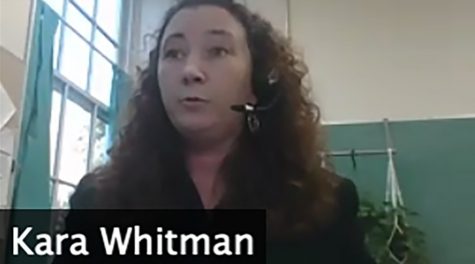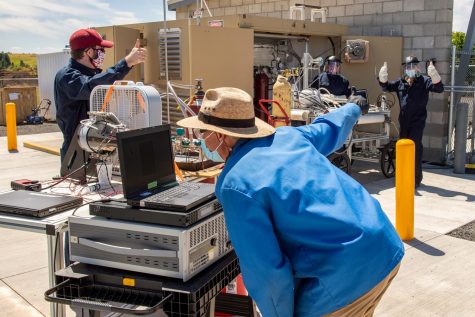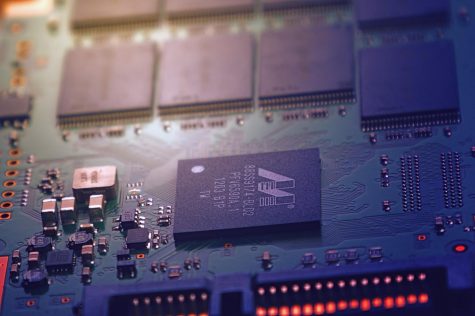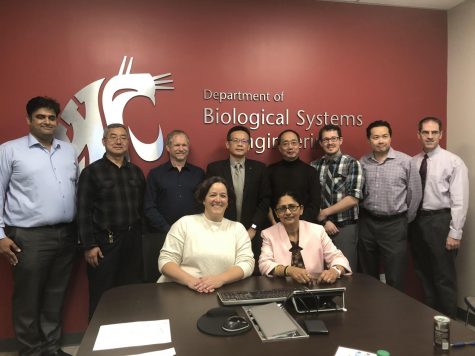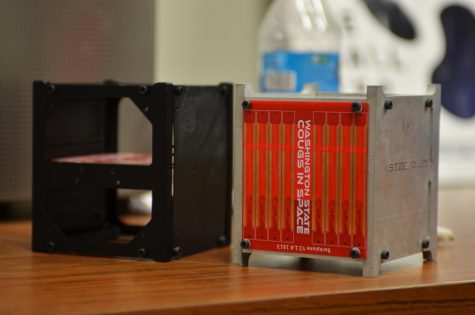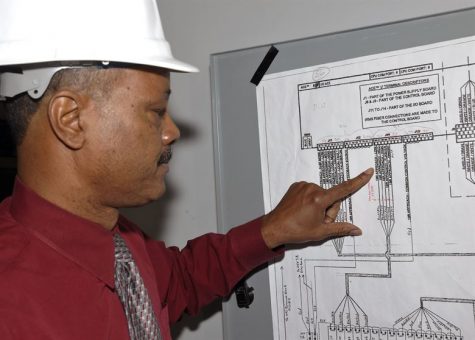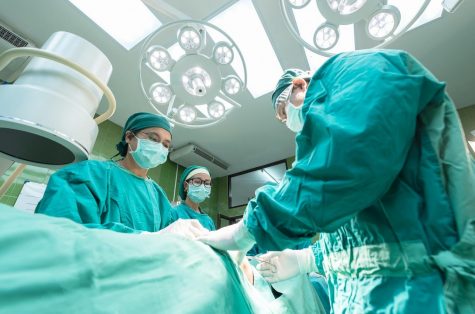Team Zephyr competes in health innovation
Members design bed for ALS sufferers, spoke with Steve Gleason for project
Members of Team Zephyr pose for a photo during the Hollomon Health Innovation Challenge last week. While the team did not place, they said they are looking forward to other competitions they qualified for.
March 11, 2020
Team Zephyr of WSU competed last week at the fifth annual Hollomon Health Innovation Challenge.
The team consists of bioengineering students Jackson Rieb, Kathryn Lober and Sarah Schroeder. They were tasked with creating a solution for a problem the world faces today related to health.
According to the team, they had to design a product or service to fix that problem and create a business summary that demonstrates the market interest and potential for their idea.
Schroeder said that in a bioengineering class last fall, the team had the opportunity to speak with Steve Gleason, a former NFL and WSU football player who was diagnosed with ALS in 2011. She said after this interaction, the team decided they wanted to develop a product that aids people with muscular dystrophy.
She said the team traveled to Spokane to meet with an ALS support group and gain an understanding of what problems patients face daily. She said by speaking to the group, the team discovered people with ALS often have trouble sleeping because of a lack of muscle control and often feel trapped in their own beds.
“We knew that we should address this,” Schroeder said.
Rieb said after doing some competitor analysis and looking at models like the Sleep Number mattress, the team developed the Zephyr Mattress. He said the Zephyr ensures that people suffering from ALS can get a full night of restful sleep in their own home through the integration of a pressure-sensitive and oscillating mattress and bed frame.
Rieb said the pressure sensitivity of the mattress allows the patient to adjust the firmness to more easily get in and out of bed. He said the mattress was also modeled to prevent bed sores.
“We started with the mechanical side of things, creating air cells and picking out the foam,” Rieb said, “and then moved towards the electronic side of things.”
After initial entry and judging, the Zephyr product and the team were selected as finalists to compete at the conference.
According to the Arthur W. Buerk Center for Entrepreneurship, a total of 21 teams were selected from the record 51 student entries to compete last Thursday at the center, located at the University of Washington’s Foster School of Business. The finalist teams represented five different colleges and universities, including UW, WSU, University of Idaho and University of British Columbia.
For the final round of judging, the team said they had to prepare a one-page business summary, a one-minute pitch, and set up a trade-show style booth showing off their prototype.
“It was great practice for other competitions,” Schroeder said.
According to the Buerk Center, the grand prize of $15,000 as well as the Herbert B. Jones award for $2,500 went to the ApnoMed team of UW for creating a solution for sleep apnea sufferers that eliminates issues with the jaw while leaving behind no long-term side effects.
While the Zephyr team did not place, Schroeder said they are still moving forward.
“Look out for us out there,” Schroeder said.
The team will be competing in the Northwest Entrepreneur Competition in Spokane next month, as well as the WSU business plan competition and a pitch competition at the University of Idaho.

